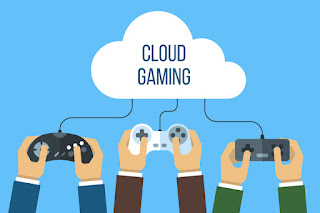What is Cloud Gaming's Missing Piece Is 5G
When my brother and I were children, our family took a lot of road trips. We loved the final destinations, but getting there was a big reason. We had Game Boy Colors and other handhelds, but we already played the games we played many times before. Consoles and desktop PCs are not portable at all, so we are often bored and have played dumb games like Punch Buggy, pushing their parents away from the process. If we could have used laptops or smartphones to connect to cellular networks and stream games to the cloud, then the car ride would not have been very enjoyable.
I say that from the benefit of handsite: Little Me Not would have anticipated that cloud gaming would become a thing. But it has the potential to make gaming more accessible - not only to children traveling on the road, but also to those who cannot afford gaming rigs.
Cloud gaming has a lot of benefits: you can save on shelf or desk space without a huge desktop, you don't have to worry about running your console SSD out of storage space, and you definitely have hundreds Or don't have to spend thousands of dollars on a gaming console or PC. If you subscribe to a service like Google's Stadia Pro for $ 10 a month, it will take you about 10 years to spend the same as what it would cost to buy a mid-range PC. If you subscribed to Nvidia's cloud gaming service GeForce Now for $ 5 a month, it would take twice as long to cover the cost of the game. But to do games on the cloud, you need access to good, fast Internet, and 5G is designed to provide more people - whether it's at home or on the road.
Cloud gaming's popularity skyrocketed last year due to an epidemic-induced global migration. More people are playing video games in general because they are stuck inside with extra free time, or because it is a way to stay connected with friends. But cloud gaming in particular saw a huge spike, inspired by big-name titles such as Cyberpunk 2077.
"If you wanted to play a more advanced game with your friends, [but] you didn't have a gaming PC that could run it, then cloud gaming became a way for you to play with your friends," Candice Mudrick Said, head of market analysis for games and exports to data company Newsu during a recent Gamebench panel on cloud gaming.
Microsoft xCloud, PlayStation Now, and Nvidia GeForce Now saw the largest growth of subscribers in 2020, according to Mudrick. As of January, Microsoft's total number of Xbox Game Pass subscribers was 18 million, an increase of 3 million from September 2020. GeForce Now had 6 million. Registered users in the same month, an increase of 1 million from November 2020. PlayStation Now had 2.2 million subscribers as of May 2020. Newzoo predicts that by 2023 the cloud gaming market will be worth $ 4.8 billion.
And all this precedes the 5G network, which enables faster speeds and lower latency, which has completely blanketed the world.
Large wireless carriers and wireless broadband companies use cloud gaming as a prime example of the potential of 5G. With a 5G-compatible device, gamers can unlist with a wired broadband connection in their home and downsize with heavy, expensive PCs and consoles (if they want). This seems to be the case even for gamers who are minimal, or parents who do not want to invest in an expensive device for their child.
The fastest version of 5G, based on ultra-high millimeter-wave spectrum, is capable of speeds as fast as gigabit fiber internet - or faster. According to Verizon, 4G LTE tops out at around 50Mbps, which is fine for playing most games on the cloud on your phone, but nowhere near enough speed for a home network with many users. It is important to note that cellular 5G can be implemented on the same 5.0Ghz frequency as your WiFi router, but they are two different technologies. The mmWave piece of 5G cannot penetrate buildings or windows, which is why AT&T and T-Mobile have preferred mid-band 5G coverage. Mid-band is faster than LTE but slower than mmwave, but you need both speed and signal strength for wireless cloud gaming.
Cloud gaming does not require 5G home broadband - and only one carrier (Verizon) even offers it as an option - but the first 5G-capable laptops are already here. And you don't need a $ 2,000 PC to play Demanding Games; Cloud gaming works on any type of device, including Chromebook and MacBook. It is possible that 5G will become a viable home Internet option, but for now, mobile cloud gaming is a preliminary test of just how impressive 5G really is.
Look, it's not magical. It is the limitations of every other wired and wireless service, including network bandwidth, latency, service range, and of course, cost, the most prohibitive for rolling out technology for rural areas.
Tags:
Review
